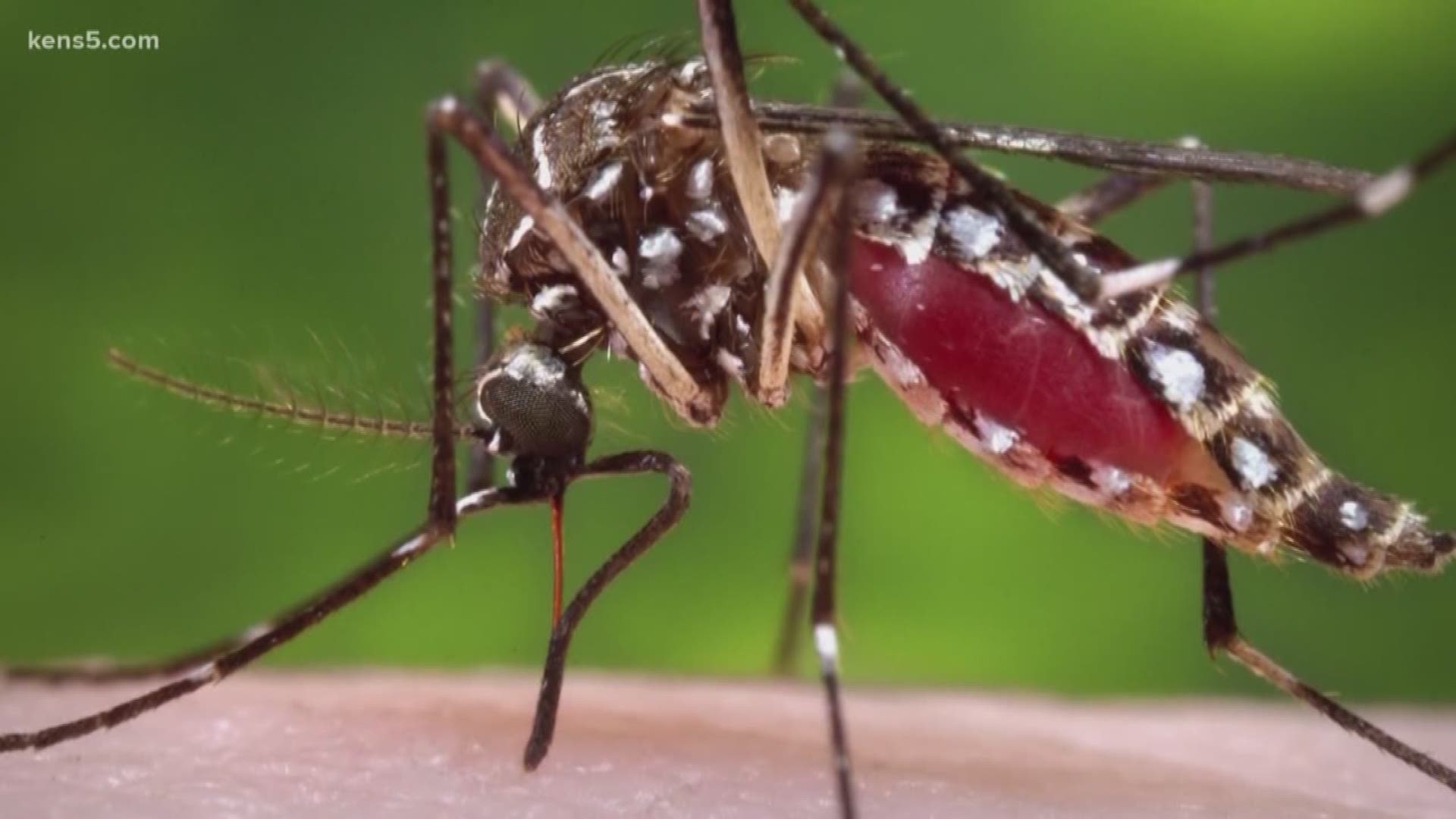SAN ANTONIO — More water means more mosquitoes - and since we've had some rain recently, it's inevitable that we'll see more of the pesky insects responsible for making us scratch and feel itchy all over.
That’s why Metro Health is reminding people to take a few simple steps to prevent mosquito breeding and mosquito bites.
The first tip is simple - remove any standing water. Mosquitoes can lay eggs inside and outside of your home. Health experts suggest once a week, emptying and scrubbing, turning over, covering or throwing out containers that hold water, such as:
- Vases
- Pet water bowls
- Flowerpot saucers
- Discarded tires
- Buckets
- Pool covers
- Birdbaths
- Trash cans
- Rain barrels
They said if water must be stored, tightly cover storage containers to prevent mosquitoes from getting inside and laying eggs.
“When water is contaminated with organic matter (for example, animal waste, grasses, and leaves), the chances that mosquito larvae will survive may increase because contaminated matter provides food for larvae to eat.”
To protect yourself, they advise you to:
- Wear long-sleeved shirts, long pants and socks to protect exposed skin during dusk and dawn, which is when mosquitoes are active.
- Avoid use of perfumes and colognes when working outdoors.
- Use air conditioning or make sure there are screens on all doors and windows to keep mosquitoes from entering the home.
- Use an insect repellent containing DEET or Picaridin on skin not covered by clothing.
- Choose a repellent that provides protection for the amount of time that you will be exposed. The more DEET or Picaridin a repellent contains, the longer time it can protect you.
- Spray insect repellent on the outside of your clothing (mosquitoes can bite through thin clothing).
- Do not spray insect repellent on skin that is under clothing.
- Insect repellents should not be used on young infants.
- Do not spray aerosol or pump products in enclosed areas or directly on your face. Do not allow insect repellent to contact your eyes or mouth. Do not use repellents on cuts, wounds or irritated skin.
If you are working outdoors, experts say you should use soap and water to wash your skin and clothing that has been treated with insect repellent.
For more information, visit Metro Health’s website.

